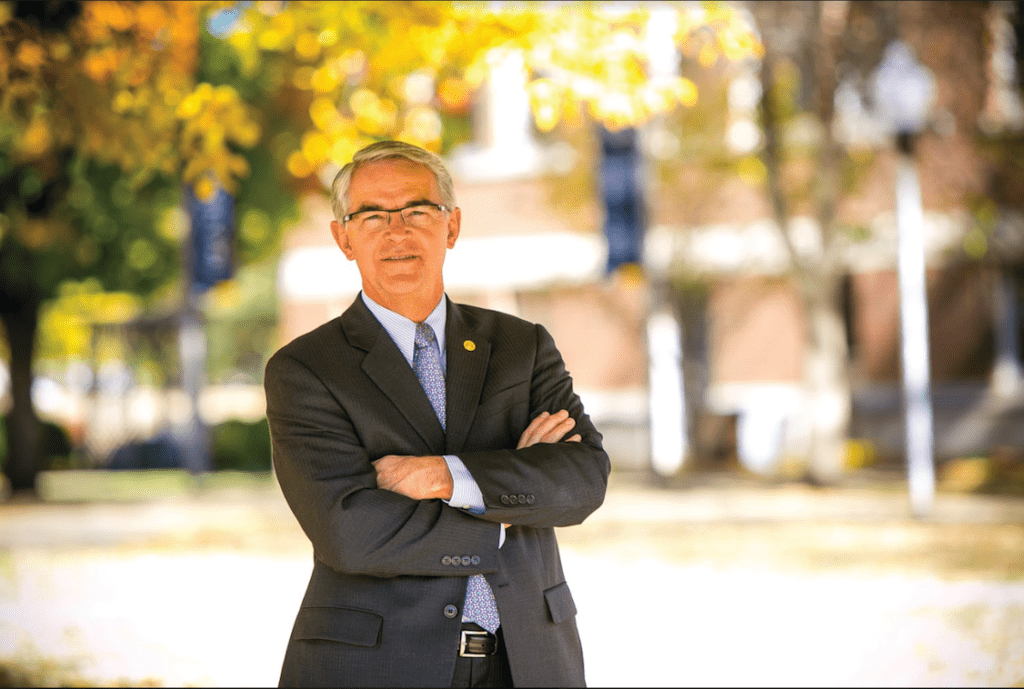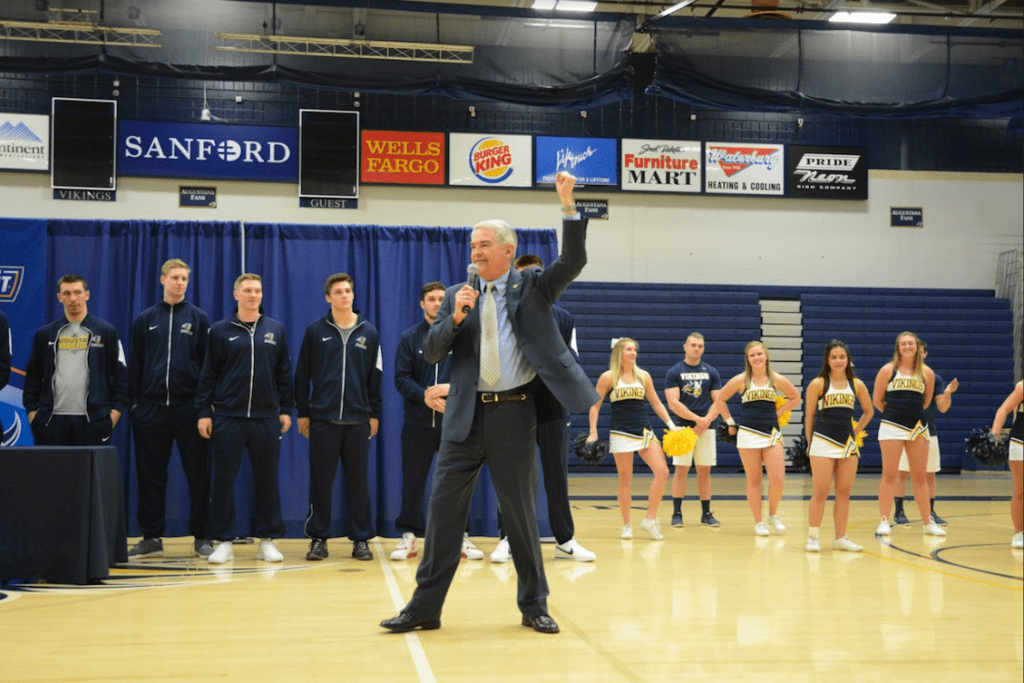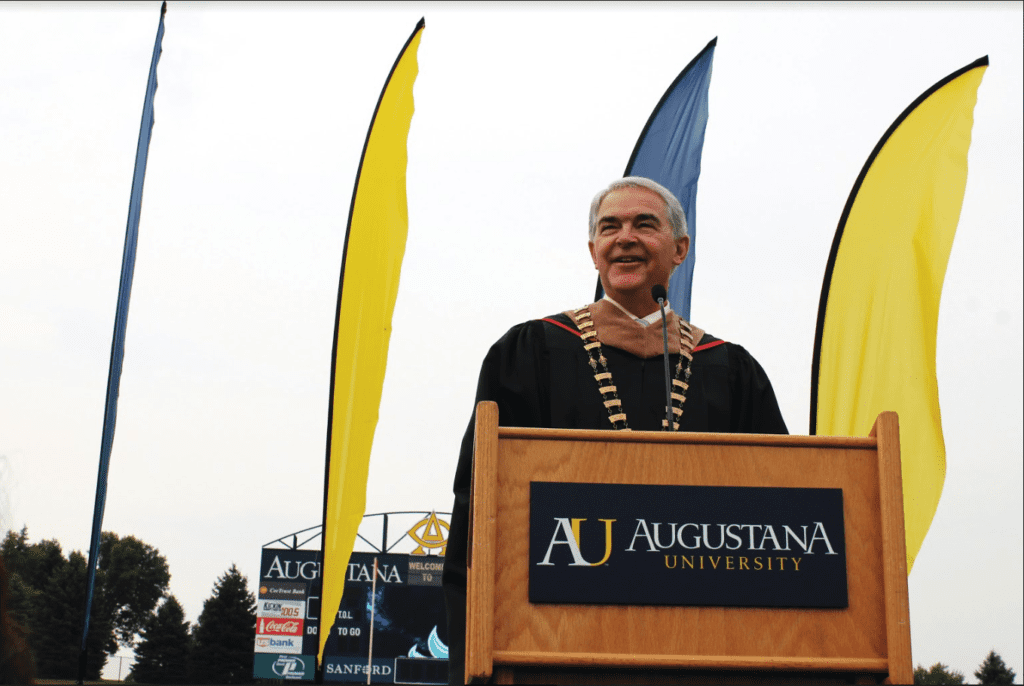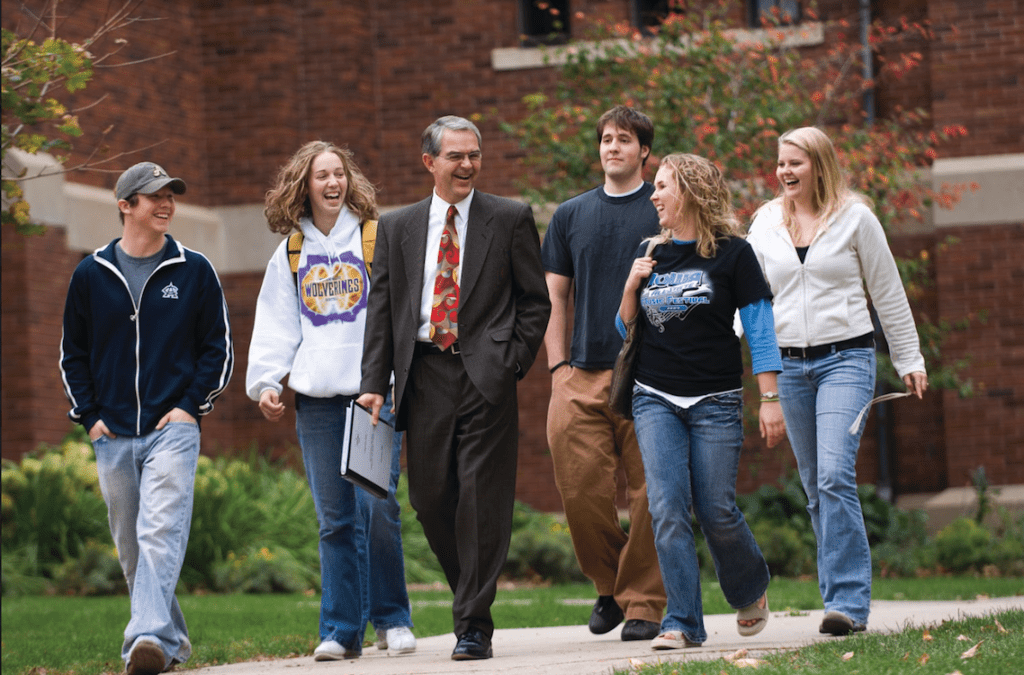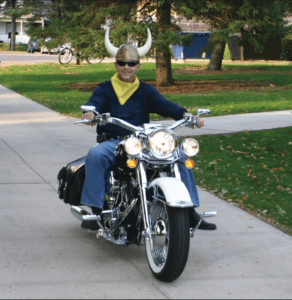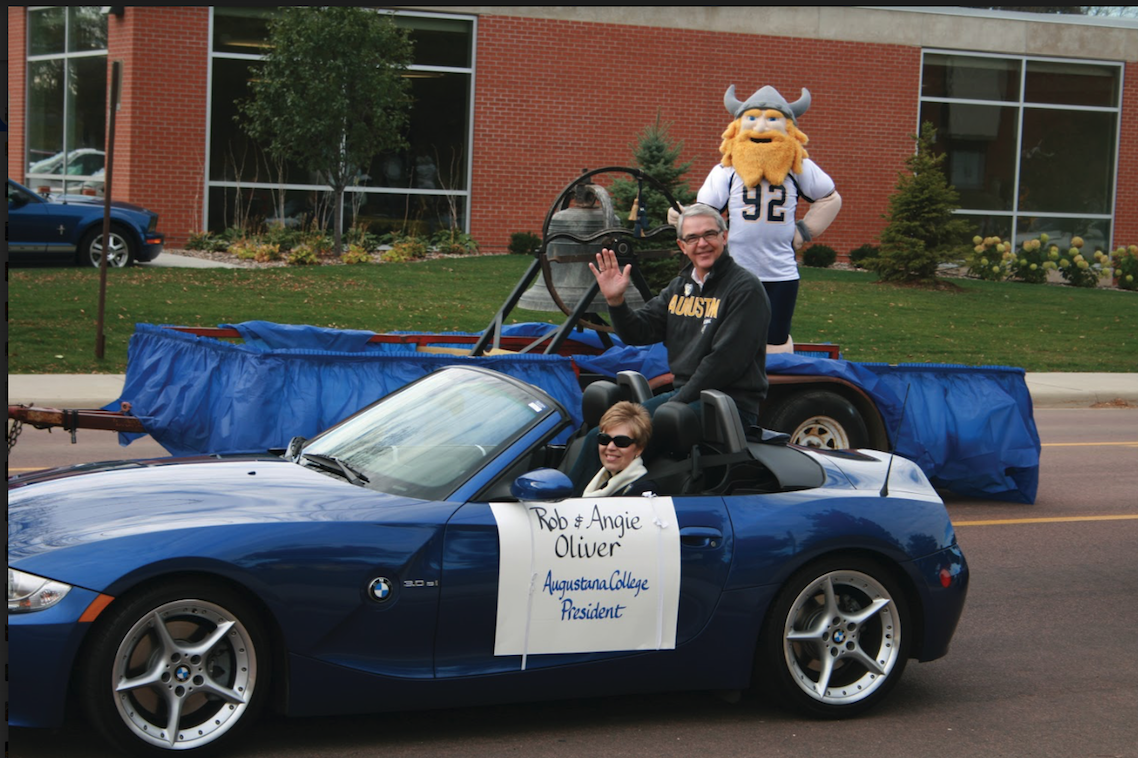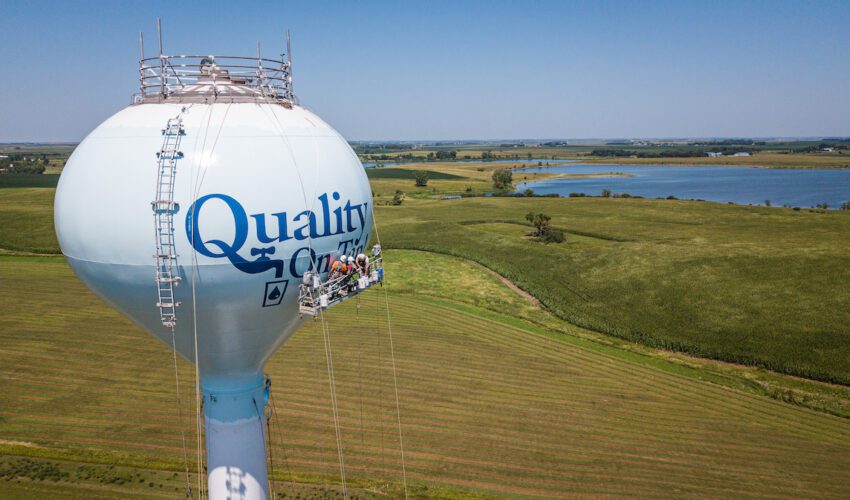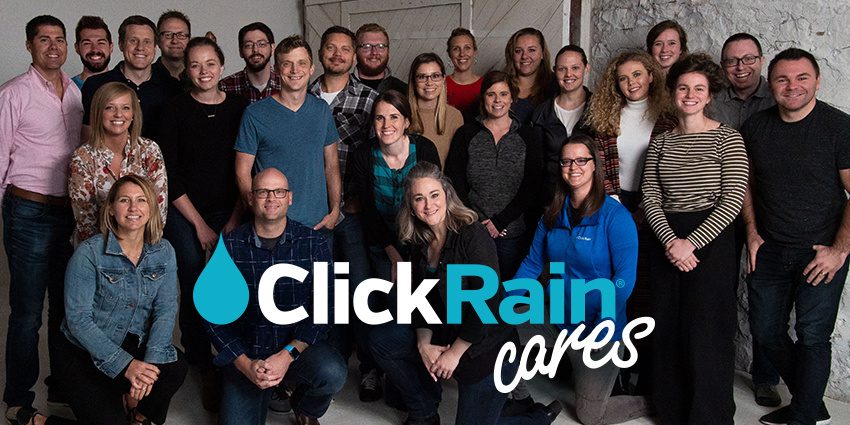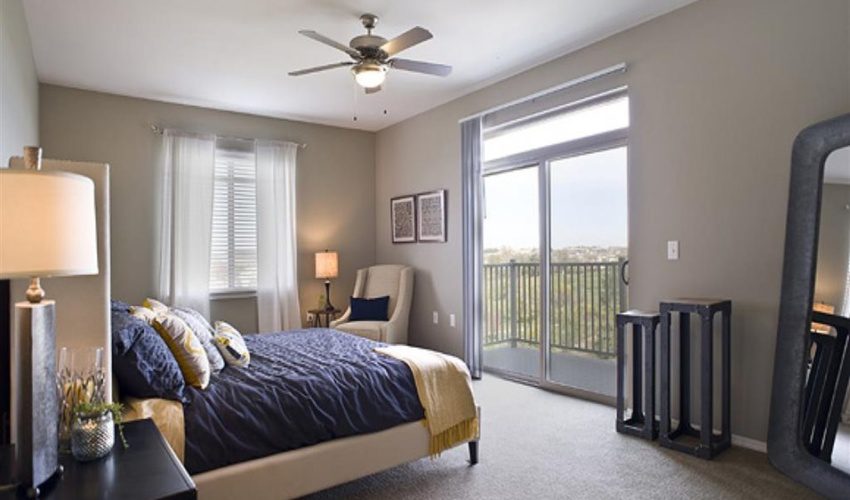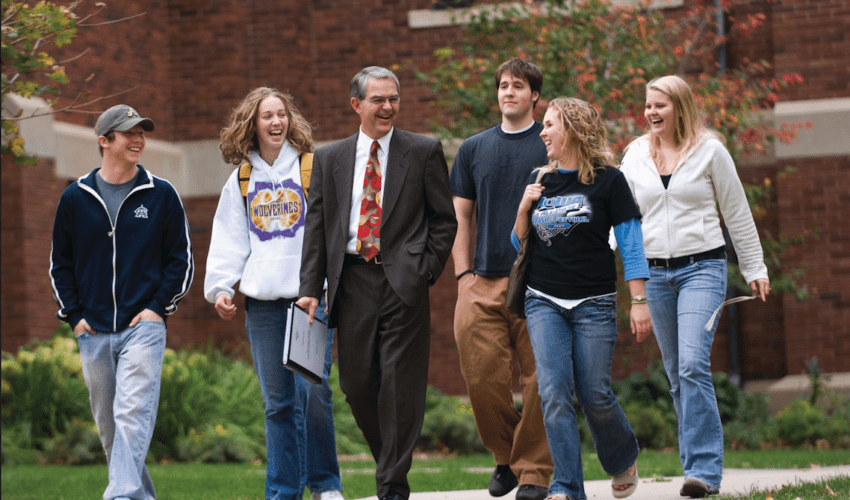Retiring president Oliver: On leading Augustana, workforce development and what’s next
This piece is presented by Augustana University.
Rob Oliver wraps up his term as the 23rd president of Augusta University this month, leaving behind 11 years of accomplishments and a foundation for the future. We caught up with him to look back and look ahead.
What’s your best memory from your time at Augie?
That very first big gift we received for the library (an anonymous $6 million gift to fund a complete renovation of Mikkelsen Library in 2007). That was huge. It was huge for Augie, but it also helped ignite a momentum that we were hoping to get started. Shortly thereafter, we received the gift for the football stadium (a $6.1 million gift from Bob and Kari Hall, also in 2007). That was really a momentous time.
Those big gifts stand out because of their size. But there were so many smaller gifts that stand out because people gave what they could.
I think of every fall during opening days. Move-in day and seeing how excited the students and families are. Commencement time — that goal successfully reached. That’s huge.
I think of Christmas Vespers — when you can feel the music.
I think of watching our student athletes, perhaps especially that first game at Kirkeby-Over Stadium. My favorite photo is still the one of our women’s cross country team winning the national championship in Spokane, Washington, in 2011. The team is gathered around the finish line in their shorts and tank tops with smiles on their faces and snow falling in the background.
I think of traveling with students in Greece and Ireland. Going to the Nobel Peace Prize ceremony in Norway.
There’s not any one thing. There are just so many great memories.
The sense of community at Augustana is on full display in this fun look at Oliver Day, held this past May.
What has been your proudest moment?
Again, there are many, but I think the Froiland Science Complex is huge. The number of years we dreamed about that and imagined it. To see it completed (fall 2016) was a pretty proud moment for me and the entire campus community. We take pride in it, but it happened thanks to so many people saying “yes,” giving of themselves and investing.
The national championships. Our Rhodes Scholar from Pakistan, our Schwarzman Scholar. The accomplishments of our young people create those proud moments. We all take pride in their accomplishments.
In the past 11 years, Augustana has changed significantly and so has the city of Sioux Falls. Each entity has experienced so much growth and development and innovation. In the midst of that growth, how has the partnership between AU and other organizations in Sioux Falls deepened over the years?
Partnerships have really been key for us. These are initiatives that will continue to bear fruit well into the future with more and more employers and different organizations.
I think of the legacy relationship between Augustana and Sanford Health. Over the years, that has given way to academic collaborations — think of our master’s program in genetic counseling — as well as countless internship and clinical opportunities for our students, athletic partnerships and outreach to the community. It’s a partnership that has grown and developed over time.
I think in the community now — thanks to organizations like the Sioux Falls chamber and Sioux Falls Thrive — we’re seeing new and enhanced opportunities for Augustana and for our students. In June, Augustana was named the host for a new data warehouse that will act as a central repository of workforce, economic vitality, social services, education and quality-of-life data for the Sioux Falls MSA.
We’re just so fortunate to be right in the heart of a growing, vibrant city. So I think it’s a matter of us taking advantage of our presence in Sioux Falls but also of us really reaching out and being proactive about building relationships effectively.
That’s how we’ll continue to serve our students and how we’ll be of service to the community we call home.
Workforce development is a constant topic of conversation in Sioux Falls. You spent almost three decades working for a major national employer with headquarters here. For the past 11 years, you’ve led an institution that you’ve called an importer of intellectual capital into the workforce. Can you talk about what it’s like to see the issue of workforce development from those two different perspectives?
When I was at Wells Fargo and we were hiring people, we were looking for good talent not just for the moment but people who could grow into greater and greater responsibilities as their careers matured. On the one hand, there’s that view.
On the other hand, we’re trying to prepare these young people to understand that they need to be lifelong learners so they can continue to adapt to change.
So I see the full circle. From the standpoint of preparing someone for the workforce, then managing and coaching people.
And I continue to feel optimistic about the future. I certainly feel optimistic when I see the caliber of graduates Augustana produces and the post-graduate outcomes they achieve — 98 percent job placement for recent grads. That’s pretty great!
Speaking of lifelong learning, what do you see for the future of Augustana’s graduate programs?
I think graduate programs will continue to play an important part in our future. As our community continues to grow, one of the demographics that is really growing is the 20- and 30-somethings. As they grow in their careers, they continue to seek to add value and life experiences. At the same time, their employers are seeking to invest in them. So offering continuing education and graduate education is just a really logical opportunity for us.
So the question is, how do you create something that is really needed and of great value to both the students in the workforce and the employers? And how do you do that in a manner that is cost effective for everyone?
We don’t need to duplicate what’s already out there. We need to fill in gaps that are not being well-served, and there’s some great opportunities there. I believe we can leverage some of our strengths to do that.
And we know that the more you build the infrastructure to support graduate education and the coursework to support it, the more pathways of study you can create.
I think our grad and continuing ed programs will continue to grow and will be, in our future, more and more a part of what Augustana University is all about.
I don’t see that we’re going to abandon who we are as a residential, four-year, liberal arts baccalaureate institution. I see grad programs as quite complementary to that.
An example is our professional accountancy program. That’s a four-plus-one program that builds our undergraduate and graduate programs at the same time. Our new athletic training master’s program will build the undergraduate program as well.
I can see some of our professional programs really serving growth areas across all industries, but the unique thing is that our culture and our history in the liberal arts add great value to those professional programs. That’s our niche. That’s our ability to add significant value — to bring our belief in that system and process of learning and broadly educating people into those professional programs.
Can you talk about any new graduate programs that are in the works?
I can see a master’s degree in nursing on the horizon. I can see the prospect of a master’s degree program in health care administration. Perhaps a business administration program and a public administration program. I can envision a professional science management program, which would be right up our alley in terms of the strength of our science program but also for our students who will go out and work in the world of commercial science. Developing one of those programs helps to build the infrastructure for others.
So what’s next for you? What are your plans now?
I’ve been approached by some boards asking me to serve, so we’re looking at those opportunities. I have said yes to serving on the board for Lutherans Outdoors.
My wife, Angie, and I also want time and flexibility, so we’re being careful about committing ourselves to too much.
We want to travel. There’s a lot to see in this country. We’ve had opportunities to travel, but there are a lot of places we’d like to visit again and spend more time or see for the first time. Lots of national parks. Just to be able to do that together, to enjoy it together and not feel like we’re in a great big hurry, that will be wonderful. And a lot of those trips will take us to places where we can visit friends and family, so that will be good.

